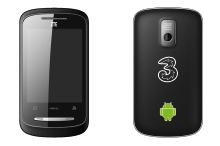The Next Generation Mobile Networks (NGMN) Alliance and the TM Forum today announced that they have signed a co-operation agreement to work together on optimized management systems and operations of the next generation of mobile networks.
The introduction of the next generation, simplified all-IP network infrastructures requires matching advances in the operational processes and systems that create, deliver and monetize the services that run over these networks. The co-operation between the two organizations will facilitate the delivery of solutions that directly address the operator needs in managing these networks.
The NGMN Alliance is an initiative of a group of leading mobile operators, technology vendors and research institutes. This initiative complements and supports the work within standardization bodies by providing a coherent view of what the operator community is going to require in the decade beyond 2010.
The TM Forum is well positioned to address the requirements for managing end-to-end all-IP networks. The global industry association already has significant experience in addressing both business and technology challenges for operators, having developed a mature set of best practices and standards which are widely adopted across the industry. TM Forum Frameworx, which includes the Information Framework(SID), Business Process Framework (eTOM), Application Framework(TAM) and software interfaces, will be considered the foundation for meeting the operators’ needs.
NGMN and the TM Forum agreed to work together on Operational Efficiency enhancements for next generation multi-technology networks in a joint project. The project aims to: Define deliverables and timelines within TM Forum to support the NGMN Operations Requirements for next generation mobile networks; Address the wireless-wireline convergence aspects of the operational requirements; Under the umbrella of NGMN, achieve collaboration with other standards forums, e.g. 3GPP, in the area of NGMN Operations Requirements for next generation multi-technology networks
“Self-optimising capabilities and standardized O&M systems are essential for the successful operations of next generation mobile networks,” said Dr. Peter Meissner, Operating Officer of the NGMN Alliance. “We will work together with TM Forum to ensure broad, industry-wide support and adoption of NGMN’s requirements and use-cases in those areas for the benefit of the whole industry.”
“With widespread broadband service all the way to the handset as next generation mobile networks will provide, scalability and customer satisfaction will be the keys to monetization of the network,” said Keith Willetts, Chairman of the TM Forum. “Working with the NGMN Alliance will provide us with an invaluable set of requirements firsthand so that the standards that will enable cost effective and flexible operating environment are ready for the market, when the market needs them.”



